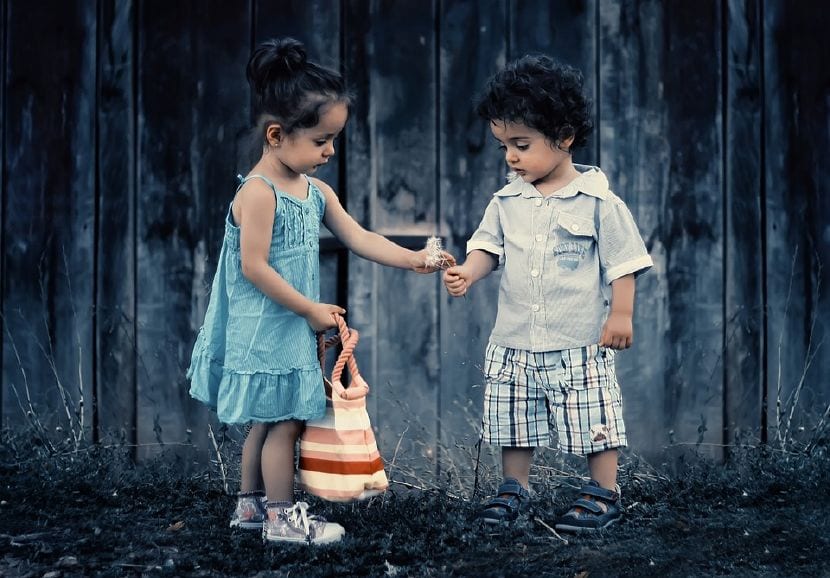
Today is October 2, International day of non-violence. We wanted to take advantage of this day to talk about how we can instill in the smallest of the house, non-violence so that they know how to reject it and act correctly. They are the future of society and we must tworking with children on non-violence.
Types of violence
By just turning on the television, we see different types of violence that unfortunately are the order of the day: gender violence, cultural, religious violence, towards oneself, towards children… It is when a person or group uses their physical force or their power figure to harm another person (physical or psychological) in order to subdue them. Many are easy to identify but other types of violence are more subtleThey are not as visible but they do as much or more damage.
We must not make the mistake of normalizing this type of situation, much less let the children do it. They already see too much violence on television, on consoles, in movies, so that they also normalize the violence of their day to day. They must be rejected and prevented within our possibilities from happening again. In this way we will serve as an example to our children so that they do not see violence as something normal that must be consented to.
Work with children non-violence
In order to sensitize children to non-violence, we must promote activities that promote equality, respect for others and oneself, empathy, self-esteem, emotional intelligence, coexistence and tolerance. In this way we will be creating a society free of violence, prejudice, where respect and coexistence are above all. Let's see the activities we can do to work with children on non-violence, promoting values that are so necessary.
Games are a very important part of children's learning and thanks to them, children learn in a playful way and almost without realizing it.
Vital space
In the open air the children are separating and drawing a circle on the ground that would represent your living space. Some would be large and others smaller. One of them must step out of their circle and try to enter another's circle without using violence. You can use persuasion, promises ... the moment you enter a circle the person who was inside must leave it and look for another. When the game is over there will be a talk about living space, respect for others, how they felt when they were outside and when they wanted to enter in your circle. The bottom line is that everyone should stay in their circle without disturbing the others.

Crafts
Through crafts they can work on concepts related to peace and non-violence. They can make origami, banners, posters, drawings ... If they do it together They will learn to work in a team and to respect the ideas of others.
Careers
Mixed groups or pairs are made and they are asked to choose a profession from a list. The professions on the list are those that are most associated with men or women. Once the group or couple agrees on the choice of profession, they must answer some questions. How did you feel about the election? Why have they chosen it and not another? What reaction did reading the list get you? It's about that reflections on the stereotypes there are related to some professions and eliminate prejudices.
Insults or appreciation?
This game is ideal for them to know the differences between insults and personal opinions or qualifications. Of the harm they cause and of not doing harm to others. Divided into groups they are given a series of insults and qualifications and should classify them in these two groups. They will have to debate among themselves to be able to do it. They will learn that the insult offends and hurts, and that it is totally unnecessary.
Because remember ... society needs a change and they are the future.